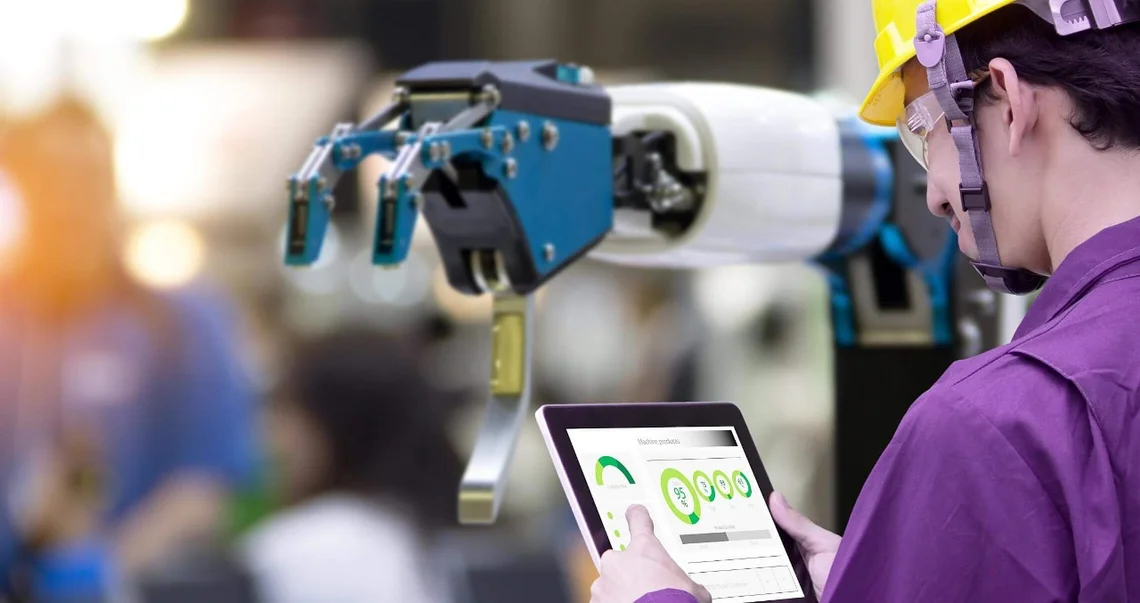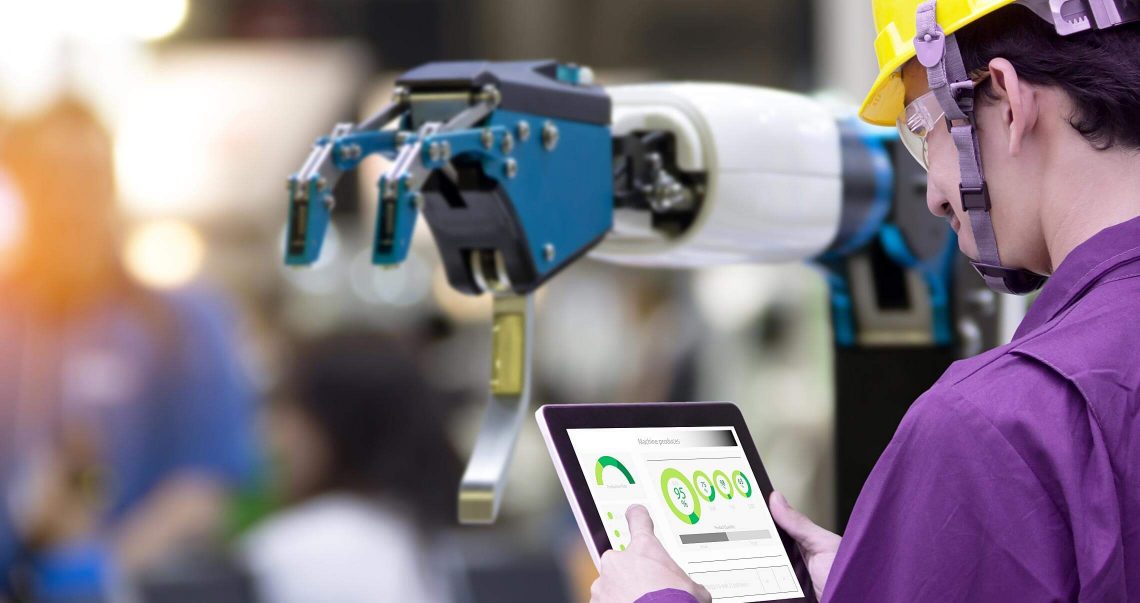The Fourth Industrial Revolution and its impact on business
A new industrial revolution is underway—and like the large-scale economic disruptions of the past, it's completely changing the way you, your peers and your competitors do business.

In the Fourth Industrial Revolution—also known as Industry 4.0—technology moves from being a tool that's applied to processes to one that's fully integrated with virtually everything your business does. While it initially drew attention for the flashy devices and platforms it's built upon, the stunning developments of this industrial revolution are increasingly becoming standard for getting business done efficiently and profitably. Data analysis, machine learning, automation and artificial intelligence, or AI, are no longer elements of the future—they're elements of the present.
Adapting during a crisis
Disrupted supply chains, production processes, safety procedures and the core concept of the workplace are all conversations that came out of one of the most profound global crises in modern history—the COVID-19 pandemic.
Facing both a sharp falloff in demand and a workforce urged to stay at home to keep family and loved ones safe, business owners scrambled for survival. Although government aid programs provided some relief, savvy leaders pivoted their businesses to meet new market demand.
Frequently, the new business approaches demanded by COVID-19 relied on Fourth Industrial Revolution technologies such as:
- Robotic systems and telehealth platforms that allow healthcare professionals to provide care while maintaining a safe distance
- Heightened connectivity that enables employees working from home to collaborate on projects
- 3D printing that facilitates accelerated production of health and safety equipment and fills critical supply chain gaps for numerous manufacturers
- Virtual reality platforms that allow for remote training and high-level service and troubleshooting to remote industrial sites
Reopening smartly
As the economy gradually reopened and employees were welcomed back to the office, many small businesses had to incorporate new processes to the workplace, including:
- AI-streamlined approaches to labor-intensive jobs such as data entry, transcriptions and image sorting
- Data-driven perspectives, including dashboards, on remote employee accomplishments and outcomes
- Remote control of manufacturing processes, troubleshooting and maintenance
- A renewed focus on the customer in sales and marketing, relying upon advanced customer relationship management and enterprise resource planning systems
- Real-time monitoring and analysis of inventories, materials and supplies
These advancements helped business leaders address the realities of a global pandemic, and in turn, better prepared companies to manage the variables of the future.
Benefits beyond a global pandemic
When you read any summary of the Fourth Industrial Revolution, it generally focuses on smart technology, driverless vehicles and the internet of things. These may not seem immediately applicable to your manufacturing business, depending on your operations.
Dig a little deeper, however, and you'll see that more extensive integration of advanced technology is already helping companies do things like:
- Tap data-driven information to increase productivity, enhance efficiency and potentially increase profitability
- Develop stronger connections to customers and clients through smarter marketing and more responsive customer service
- Sharpen operations to prepare businesses for whatever the future brings
Ultimately, the Fourth Industrial Revolution involves incorporating technology-fueled innovation into the core of everything your company does to shape more efficient and effective processes.
Adoption rooted in research
The optimal Industry 4.0 plant is a long way off, but advances are already surfacing in many industries—often resulting in enhanced performance and improved processes. Larger manufacturers tend to be the first adopters of these new innovations. As results from their initial efforts emerge, you could consider incorporating relevant elements into your business planning, including:
- Zeroing in on the data you can collect and how it can improve your business
- Objectively examining your relationships with customers and weighing how technology could improve them
- Exploring leading-edge technology that can enhance monitoring, tracking and inspection processes to bolster your shop's productivity
- Discussing innovations and developments with your suppliers to develop a dynamic supply chain strategy
- Reassessing your risks and determining how technology can reduce them while also trimming waste
- Opening the discussion with employees to encourage those interested in the cutting edge to start expanding their knowledge base
As with most new concepts you implement, the tools of the Fourth Industrial Revolution will require an investment of time, money and resources. Although the immediate benefits may be tough to see, you'll be laying the foundation for your business to continue to thrive well into the future.





